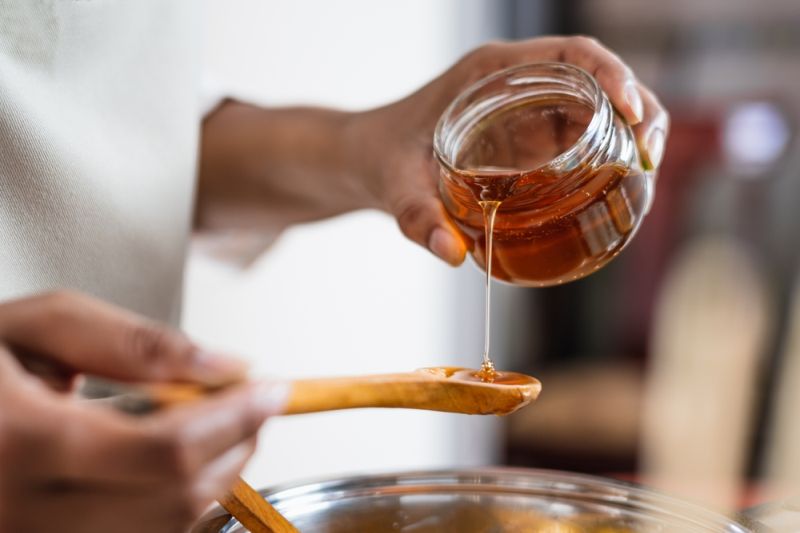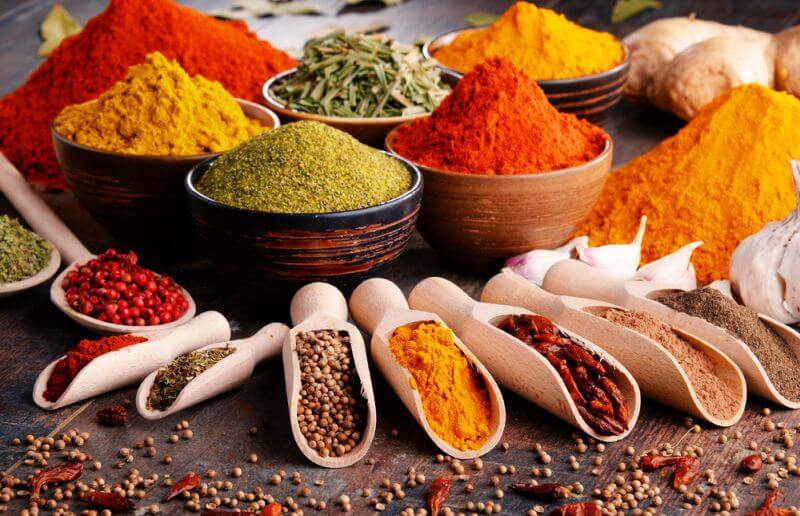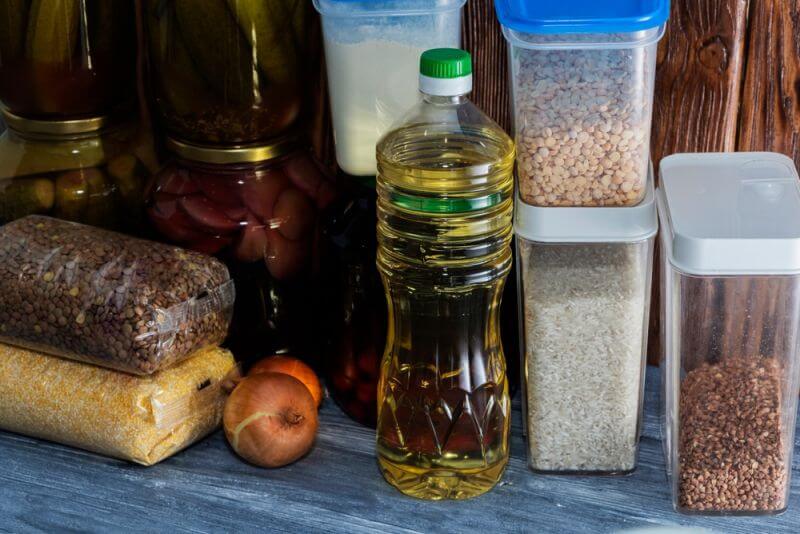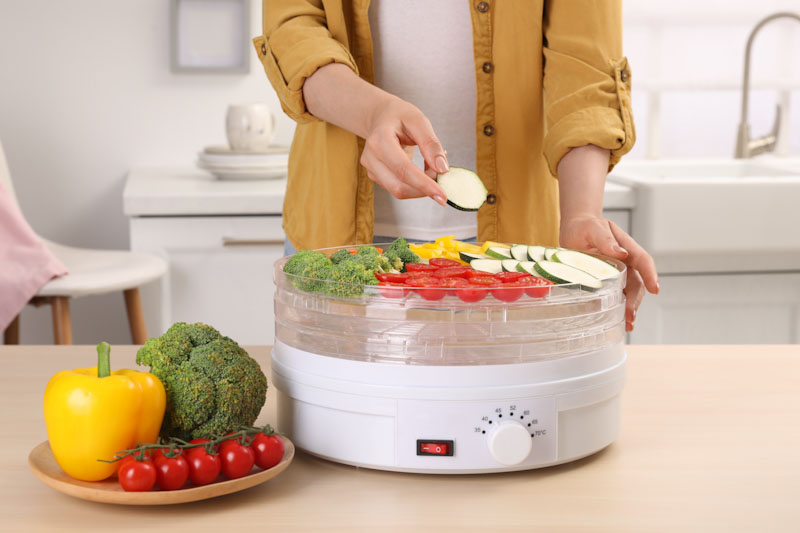Honey is one of the greatest survival foods that Mother Nature has gifted us, and humans have been using it extensively since ancient times. Besides being a nutritious delicacy, it also has an indefinite shelf life, and if you store it properly, you will be able to use it decades from now.
In addition to being an important food that helped humankind survive and thrive, honey can also be used for other purposes, such as medicine or food preservation. In today’s article, we will discuss the importance of honey for preppers and survivalists, and why it is important to stockpile it now.
The oldest honey
The oldest records of honey use date back to around 8,000 years ago, with depictions in cave paintings in Cuevas de la Araña in Spain. These paintings show humans collecting honey from wild bees. Additionally, evidence from ancient Egyptian, Sumerian, and Indian texts highlights the use of honey in medicine, rituals, and as a sweetener. Honey’s long history underscores its importance in early human societies.
The oldest honey, found in Georgia, was discovered in ancient tombs dating back around 4,300 years. This honey was remarkably well-preserved in clay vessels. While the honey was believed to be still edible, no one stepped forward to taste it. There are no documented accounts of anyone eating the ancient honey found in Georgia.
While honey is known for its incredible preservative properties and can remain edible for thousands of years under the right conditions, consuming such ancient honey would pose potential health risks due to possible contamination or degradation over time. Thus, it is generally preserved for its historical and archaeological significance rather than for consumption.
How can honey be used by preppers
First of all, honey is a great energy booster, and you can eat it as is or use it to prepare various tasty dishes. While the natural vitamins and minerals in honey are beneficial on their own, its ability to deliver quick energy during intense physical activity is a true game-changer.
Instead of turning to sugar or high fructose corn syrup for a rapid energy boost, honey offers a unique solution. It stabilizes blood glucose levels by providing fast-acting glucose for immediate energy and slow-absorbing fructose for prolonged fuel. It has a lower glycemic index (55) compared to table sugar (68), making it a more suitable option, particularly for those with diabetes—though caution is still recommended, especially in emergencies.
Second, honey has been used as medicine for centuries due to its antimicrobial and anti-inflammatory properties. In fact, honey was used extensively by the Ancient Greeks and Romans to heal battle wounds. Today, with a growing interest in alternative treatments for everyday ailments, these powerful properties of honey are making a comeback. When treating deep wounds and burns in environments where infection or immediate medical care is uncertain, honey is the primary way to go. Its low pH and high sugar content not only inhibit but can prevent the growth of various bacteria. Honey is also known to extract moisture from the wound, which leads to the dehydration of any existing bacteria.
Most types of honey produce hydrogen peroxide through enzyme action when in contact with wound fluids, enhancing its antimicrobial effects. This makes honey effective in keeping sterile wounds sterile and gradually sterilizing infected wounds over time.
Raw and undiluted honey was also used throughout our history for the treatment of vomiting and diarrhea caused by bacteria, leading to fast recovery. Manuka honey is especially good for treating these ailments.
Additionally, honey was and is still used for various skin problems such as cracked fingers or chapped lips. I’ve personally used honey during my hiking trips for wind-burnt skin, and it works great.
Lastly, honey can be used as a food preservative due to its high sugar content, low moisture, and acidic pH, which create an inhospitable environment for bacteria and mold. These properties help inhibit microbial growth, allowing honey to preserve foods by reducing spoilage and extending shelf life. Honey’s natural antioxidants also contribute to maintaining food quality.
What honey should you buy?
Selecting the right honey is crucial for fully harnessing its benefits. Raw honey is your best choice since it’s packed with pollen, yeast, vitamins, minerals, and antioxidants that work together to provide both medicinal and nutritional benefits. Its natural cloudy appearance is a hallmark of its quality. Regardless of whether you acquire it in liquid or crystallized form, all types are suitable for medicinal purposes. When choosing honey, always look for labels stating “raw, unfiltered.”
If you buy commercial honey, you should know that it often undergoes pasteurization and filtration to achieve clarity and visual appeal. You might be tempted to buy it since it’s available in various forms, but be aware that it lacks medicinal properties and is not recommended for medicinal use.
Additionally, there’s comb honey, extracted directly from the hive with raw honey stored within the wax cells. It offers the same medicinal benefits as any other form of raw honey. Some beekeepers will often include a piece of comb in a jar, and if not, you can ask to buy it separately or reserve it for the next harvest.
You should buy honey now, while it’s still accessible
As you’ve seen, there are quite a few reasons why honey is a prized possession nowadays, and you should get your hands on some right now. In fact, there are a few issues you should be aware of that should convince you stockpiling now is the right thing to do.
1. The Bees are Dying
Globally, the decline in bee populations is a pressing environmental issue with far-reaching implications for agriculture and ecosystems. Over the past few decades, bee populations have been steadily declining due to several interconnected factors. Habitat loss is a significant driver, as urbanization and intensive agricultural practices reduce the availability of natural habitats and foraging areas for bees.
Pesticide use, particularly neonicotinoids and other systemic pesticides, has been linked to bee mortality and reproductive issues. Diseases such as colony collapse disorder (CCD) have also devastated bee colonies, causing sudden and widespread losses.
Bees are crucial pollinators, responsible for pollinating a vast majority of flowering plants, including many crops that contribute directly to human food production. Without bees, the pollination of crops like almonds, apples, berries, and many others would be severely compromised, leading to reduced yields and potential crop failures. This dependency on bees makes their decline a significant concern for global food security and biodiversity.
Efforts to address bee decline include promoting habitat restoration, reducing pesticide use through integrated pest management strategies, supporting organic farming practices that prioritize bee health, and advocating for policies that protect pollinator habitats.
2. Prices are rising
Honey prices have been on a steady rise in recent years, influenced by a combination of economic and environmental factors. The primary driver of increasing honey prices is the declining population of bees, which directly impacts honey production. As bee numbers decrease due to habitat loss, intensive pesticide use, and diseases like colony collapse disorder (CCD), the supply of honey diminishes, leading to higher production costs for beekeepers.
Moreover, the growing consumer demand for natural and organic products has contributed to the upward trend in honey prices. Many consumers prefer honey that is raw, unfiltered, and free from additives, driving up the market value of such products. This increased demand, coupled with limited supply due to bee population declines, further exacerbates the price increase.
Investing in honey now can be advantageous as prices are expected to continue climbing in response to these market dynamics. It’s wise to purchase honey at current rates before potential future price hikes occur. Additionally, supporting sustainable beekeeping practices and purchasing honey from reputable sources ensures that consumers receive high-quality products while also contributing to the conservation of bee populations and their vital role in ecosystems.
3. The fake honey market is booming
The rise of counterfeit and adulterated honey in the global market poses significant challenges for consumers and legitimate honey producers alike. Reports indicate that a substantial portion of honey sold worldwide may be fake or diluted with additives such as sugar syrup or corn syrup. This deceptive practice not only compromises the quality and authenticity of honey but also undermines consumer trust in honey products.
China has been widely reported as the country with the highest incidence of counterfeit and adulterated honey in the global market. Investigations by food safety authorities and industry watchdogs indicate that a significant portion of honey exported from China may be adulterated or mislabeled. This includes practices such as diluting honey or adding artificial sweeteners to increase volume and reduce production costs.
Counterfeit honey often lacks the beneficial properties of genuine honey, such as natural antioxidants, vitamins, and minerals. Moreover, some counterfeit products may pose health risks due to the undisclosed use of additives or contaminants.
To protect against counterfeit honey, consumers are encouraged to purchase honey from reputable sources that provide transparency about their production methods and sourcing. Labels such as “raw” or “unfiltered” can indicate that the honey has undergone minimal processing and is more likely to be authentic. Buying local honey, if possible, is also a reliable way to ensure quality and authenticity.
A last word
Honey is a prized possession in a prepper’s food stockpile and can be used in many ways. It’s wise to stockpile it now while you have the chance and keep an ample supply on hand. Properly stored, honey is one of the foods that will outlast you, and chances are that one day, honey will be as valuable as gold. Be smart about it: buy raw, unfiltered honey and always buy local!










Ronald H Levine | August 8, 2024
|
“The fake honey market is booming”
Likewise, world sales of olive oil far exceeds world production of olives! Olive oil is healthy, but I can’t know if it’s counterfeit. I get my olive oil when I eat olives which is even more healthful. I don’t stor nor buy what might be olive oil. Instead, I have a huge number of cases of olives.
[email protected]
Travelin On | August 15, 2024
|
One way to test honey to determine if it is true honey or fake honey is to drop some in water. If the honey falls to the bottom of the container and sits on the bottom as is for a few minutes it is real honey. If it dissolves and filters out into the water it’s fake. Or so I have read about how to determine the difference between real and fake honey. Even crystalized true honey will fall to the bottom of the water and just sit there if it is true honey. I’ve tried it several times with the honey I personally purchase and it’s all proven to be true honey. Got some honey out of one of those little plastic honey bears one can buy and tried it. It dissolved in the water pretty rapidly. It’s also thinner in consistency than pure true honey. As a result of my own experimentation with this method I believe what I have read about how to tell the difference between real and fake honey.